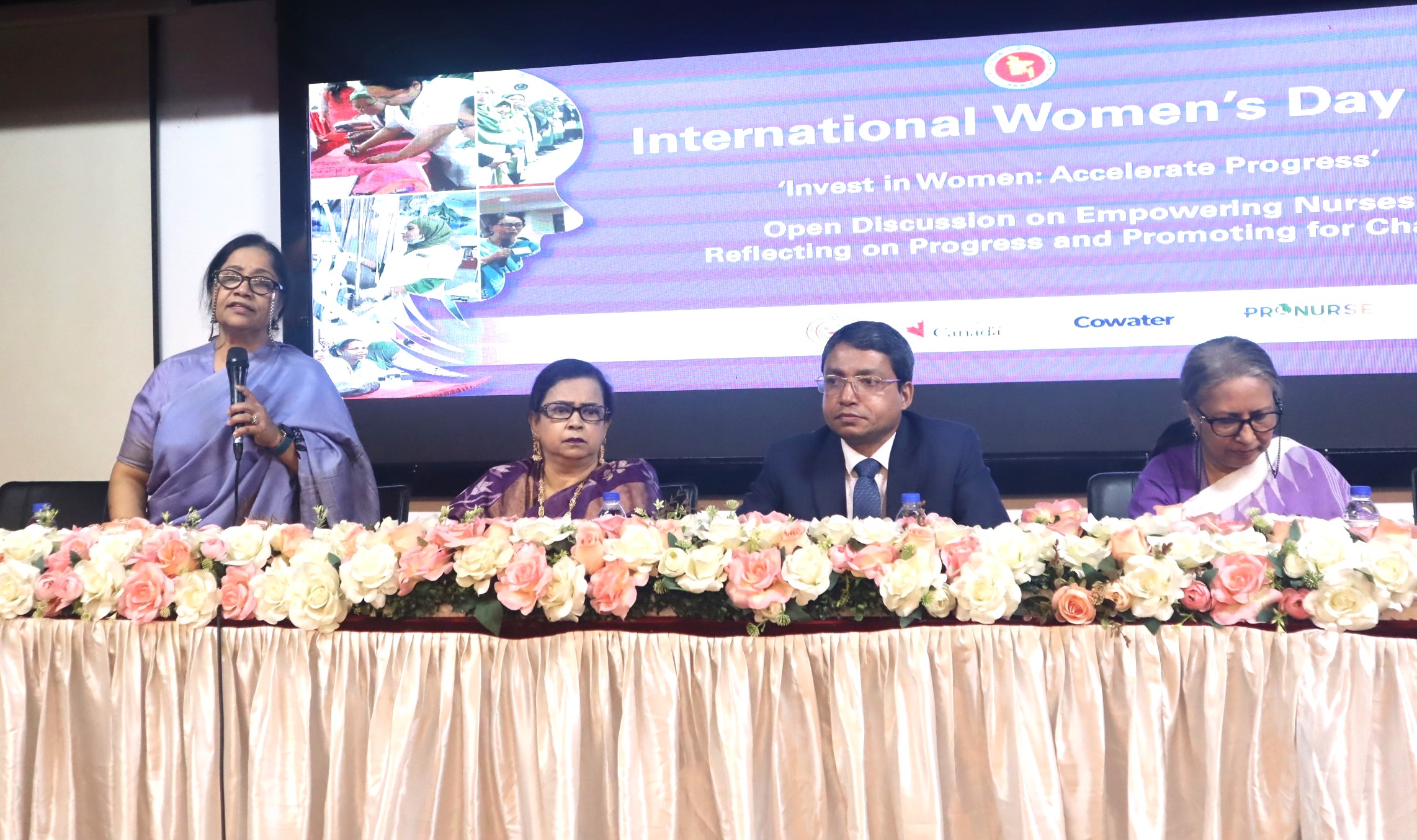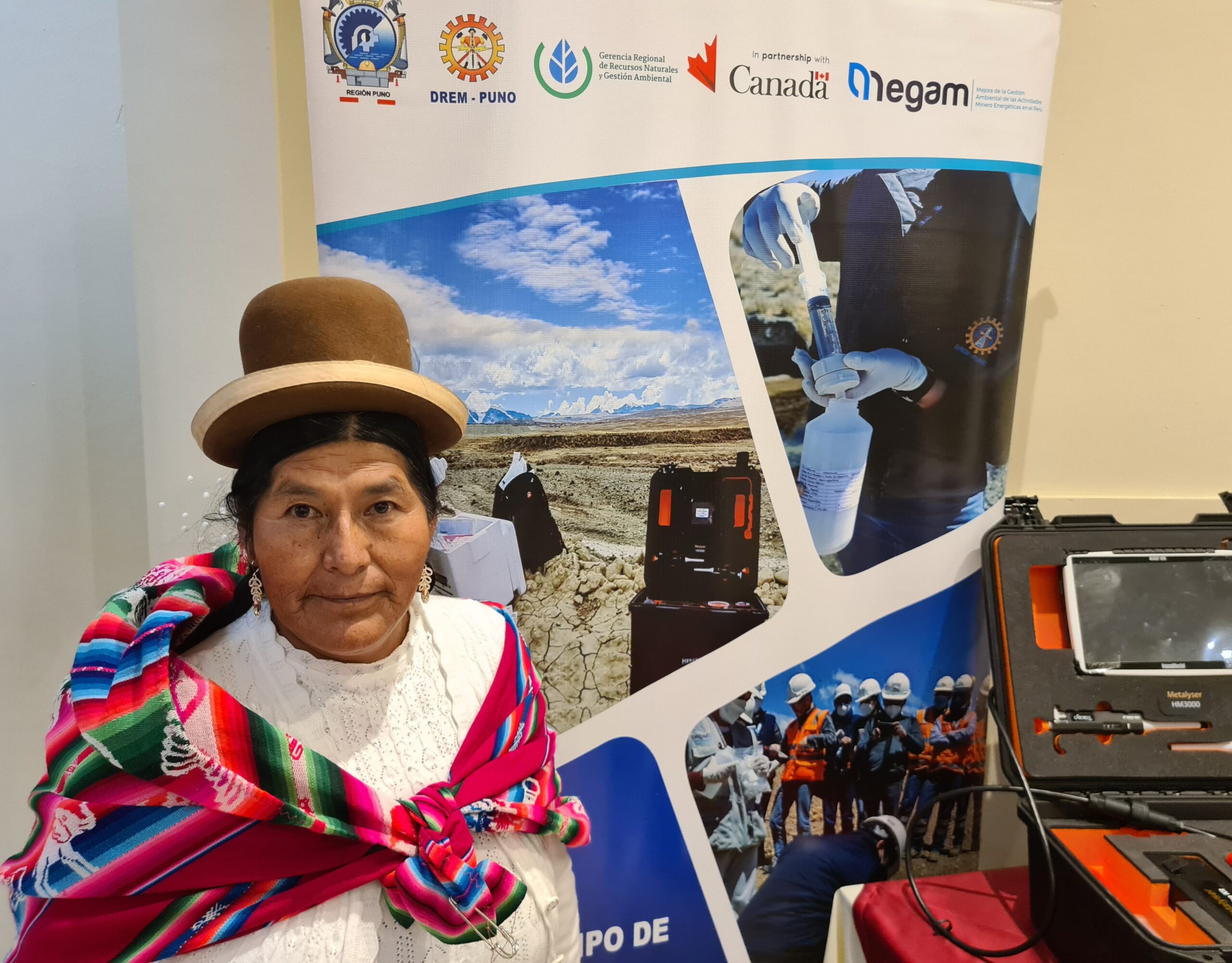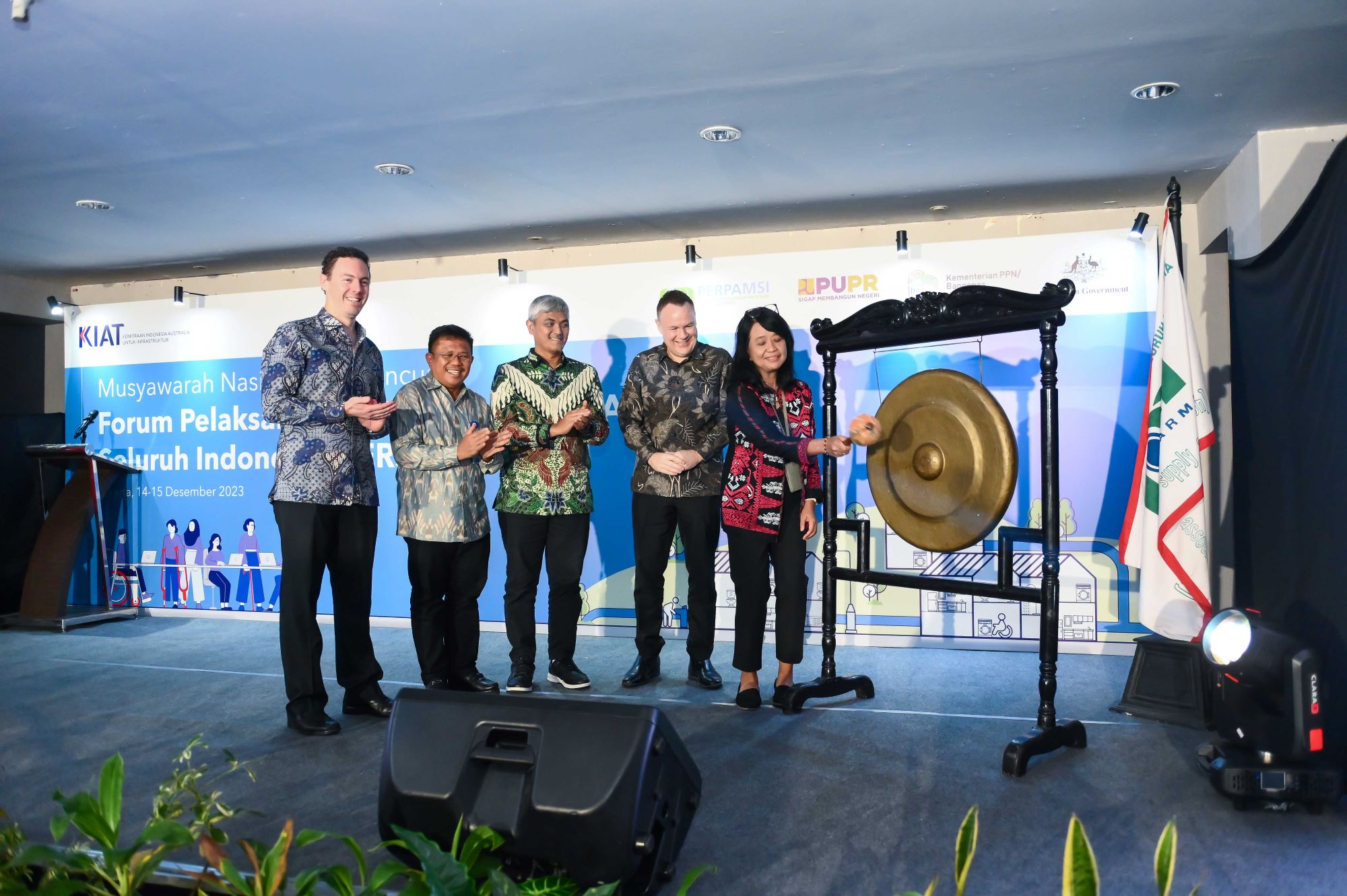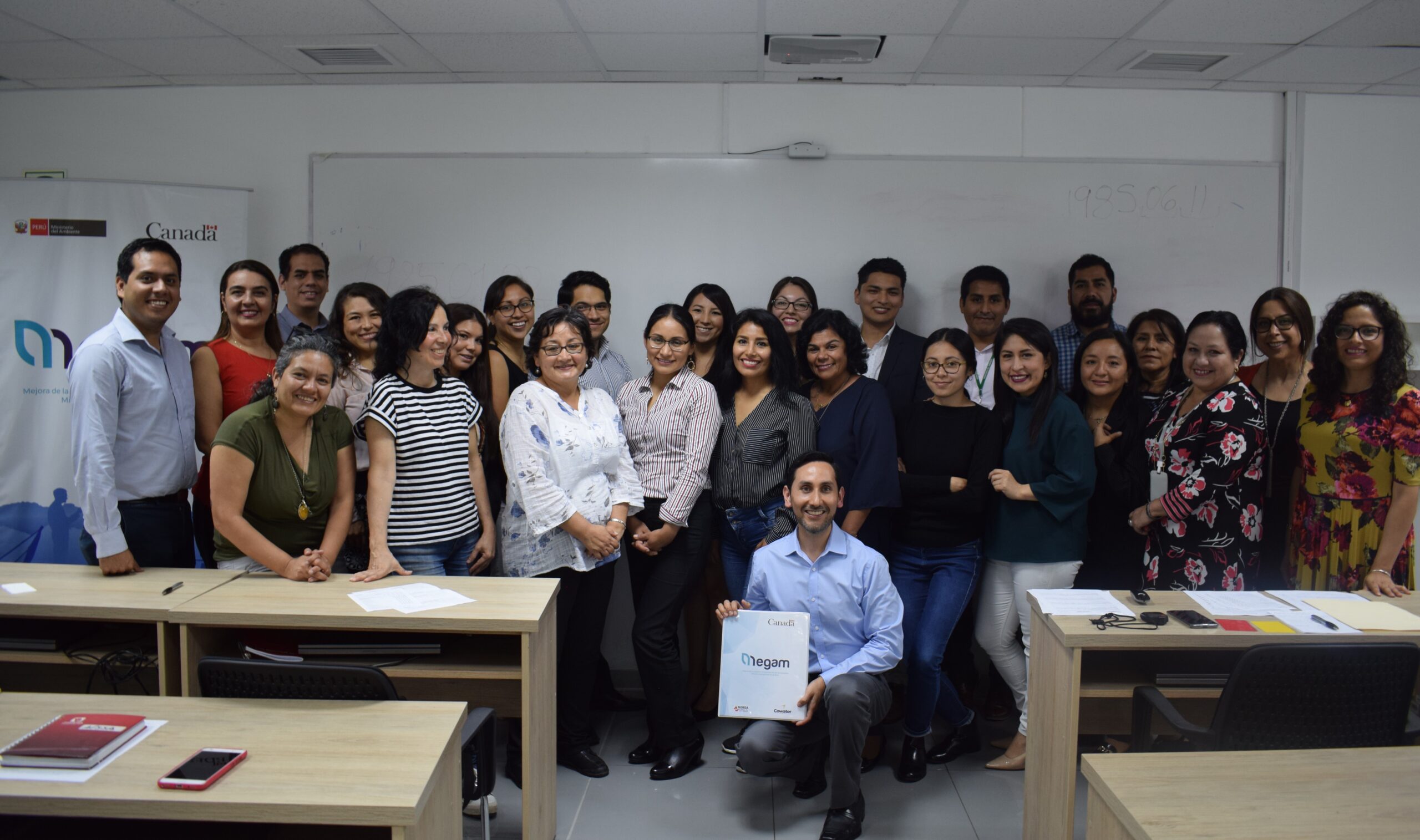
Laying the foundations for more inclusive policies in the energy and mining sectors of Peru
Peru has made it a priority to ensure equal opportunities for women and men. This objective is reflected in the country’s National Gender Equality Policy, which envisages the mainstreaming of gender into policies and processes at the national and regional levels.
Many Peruvian government workplace environments continue to have barriers that limit the effective participation of women in public management. Incorporating a gender perspective in public institutions involves amending workplace regulations and enabling changes in the institutional culture and systems, for example by improving how meetings are conducted, tackling unconscious bias, and addressing workload issues. It also implies promoting women’s representation and active participation at all levels of the civil service, including in decision-making positions.
Cowater International’s MEGAM Project in Peru has been working closely with the Ministry of Women’s Affairs and Vulnerable Populations (MIMP), the Ministry of Environment (MINAM), the Ministry of Energy and Mines (MINEM), and their various directorates and affiliated bodies to support national efforts that promote gender equality. One of the most successful examples of advancing gender-sensitive environmental policies, and the integration of a gender perspective into working culture, comes from MEGAM’s work with the National Service for Natural Protected Areas (SERNANP) – the body that oversees the conservation of Natural Protected Areas (ANP) and Peru’s biodiversity. MEGAM’s collaboration with Peruvian authorities involved a three-staged approach.
First, the project helped SERNANP identify gender gaps by conducting an institutional gender analysis. The analysis was subsequently presented to public servants and helped build an understanding of gaps and key barriers to women’s equal participation, which include gender-based salary differences, seniority of positions and overall working conditions. As a result of this analysis, SERNANP was able to improve certain institutional practices. For example, SERNANP introduced a resolution to ensure that ANP Management Committee members include women.
“Sexual harassment was a topic that was neglected and there was not much awareness about it. As a result of the analysis, we began to raise awareness and work on the issue.”, highlighted Giannina Espinoza Menendez, Legal Administrative Specialist and President of SERNANP’s Gender Equality Working Group
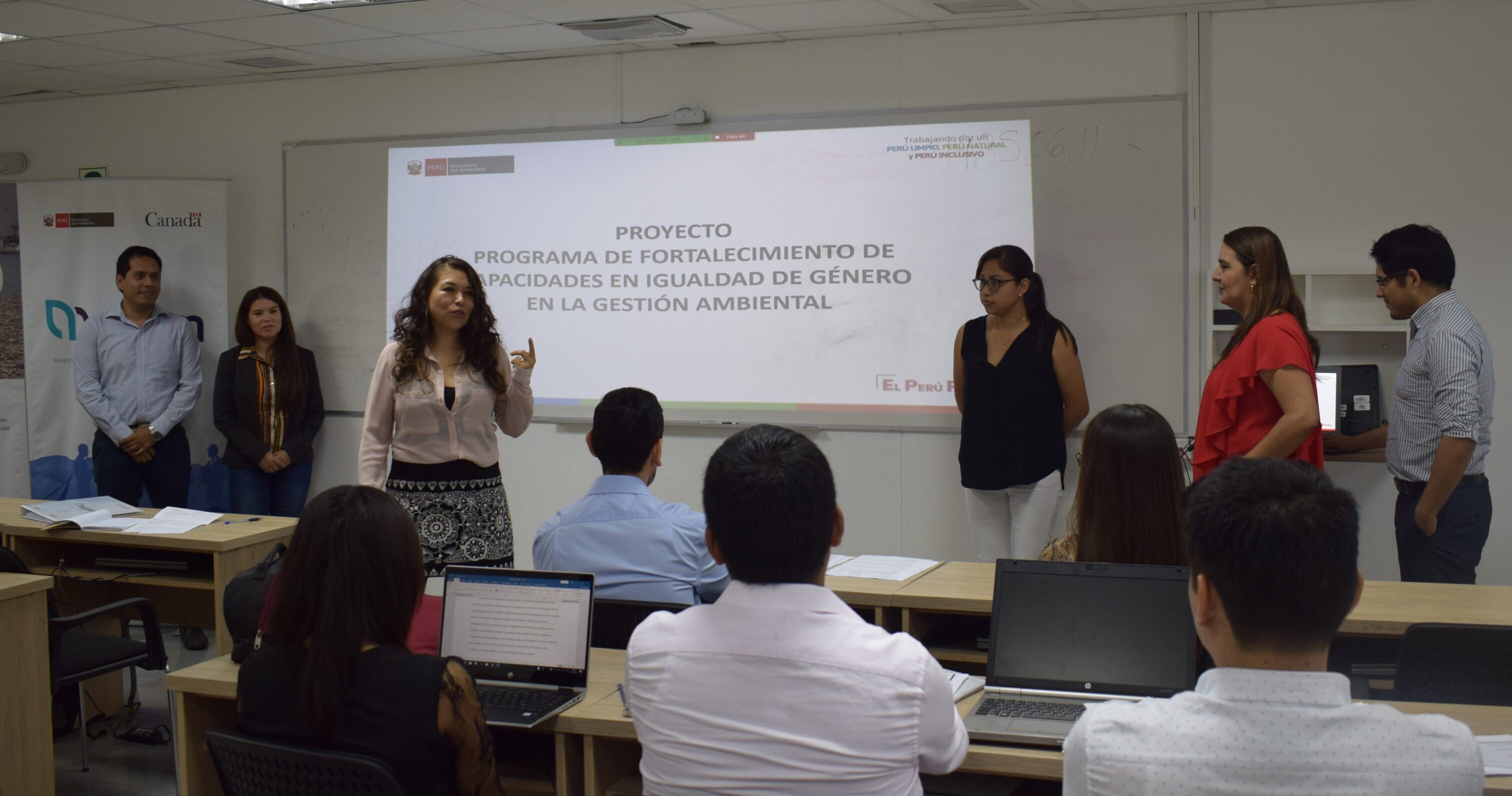 MEGAM’s assistance to SERNANP in conducting an institutional gender analysis was instrumental in developing similar diagnostic tools for MINEM and two of its affiliated bodies – the Peruvian Institute of Nuclear Energy (IPEN) and the Geological, Mining and Metallurgical Institute (INGEMMET).
MEGAM’s assistance to SERNANP in conducting an institutional gender analysis was instrumental in developing similar diagnostic tools for MINEM and two of its affiliated bodies – the Peruvian Institute of Nuclear Energy (IPEN) and the Geological, Mining and Metallurgical Institute (INGEMMET).
Second, following the completion of the institutional gender analysis, MEGAM worked with the Peruvian Ministry of Women’s Affairs and Vulnerable Populations (MIMP) in ensuring the effective implementation and monitoring of institutional gender equality action plans across a number of government bodies. Specifically, MEGAM provided support to MIMP’s General Directorate for Gender Mainstreaming to efficiently mainstream gender into policies, but also into trainings, institutional tools, plans and processes of sectoral ministries. Technical assistance was also offered to MINEM, IPEN and INGEMMET’s Gender Equality Working Groups to support the development of gender-sensitive Multi-Annual Action Plans. Through capacity building interventions in select Peruvian public institutions, MEGAM continues to contribute to the systematic integration of the rights of women and vulnerable groups into mining and energy policies and programs.
Third, MEGAM facilitated gender-sensitive monitoring of select public services. Gender equality in the provision of public goods and services means that the needs of both men and women are considered and adequately accommodated. MEGAM supported MIMP in developing a traffic light tool that assesses gender sensitivity in the provision of environmental services that fall under the institutional mandate of SERNANP. Subsequently, MIMP adapted the traffic light tool to assess gender sensitivity in other sectors, such as education and health services. By using an adapted traffic light tool each public entity will be able to better understand if the goods and services provided to citizens take into account and meet the specific needs of men and women.
“The traffic light tool helps the user determine the degree to which public goods and services are provided considering the specific needs of men and women, which is essential to promote gender equality. It is very important for MEGAM to have contributed to this process, led by the MIMP.”, noted Enrique Mendez, MEGAM Team Leader.
A holistic approach to understanding, designing and implementing gender-sensitive interventions and practices is laying the foundation for transformative change in addressing women’s rights, needs and opportunities across a number of Peruvian mining and energy sector public institutions. As a next step, MEGAM is supporting the government in implementing processes that effectively put into practice the new instruments and promote a more effective participation of women in environmental management.
Related Content
ProNurse Project celebrates International Women’s Day 2024
This year’s International Women’s Day theme was “Invest in Women: Accelerate Progress”. To celebrate and raise awareness of the role of women in the nursing sector of Bangladesh, ProNurse Project […]
Community, Capacity and Coordination: why environmental management matters for sustainable development in Peru
Author: Victor Neagu, Director of Communications and Marketing, Cowater International I recently travelled to Peru for a series of closing events linked to the MEGAM Project. MEGAM is the Spanish […]
Integration of Gender Equality and Social Inclusion in Water Utilities in Indonesia
Since mid-2020, Australia has supported the Performance Based Grants (PBG) scheme for water utilities in Indonesia through the Indonesia Australia Partnership for Infrastructure (KIAT). On 15 December 2023, Cowater International, […]




